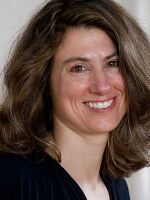When my husband and I bought a house in the Connecticut River valley town of Plainfield, New Hampshire, in 1999, we didn’t inquire about all-day kindergarten. We didn’t have children yet, and all-day kindergarten was rare. We just liked the house, school, and community.
It was significant that the town had kindergarten at all. In 2009 New Hampshire became the last state in the nation to mandate kindergarten. Up until then, not all towns had it.
As a reporter in the mid-1990s, I covered the annual school meeting of Croydon, New Hampshire, a very small town that didn’t have public kindergarten. A group of parents and educators proposed a plan to provide it. “Please,” parents pleaded to voters. “Our children need this.” Some voters balked. But after considerable debate, the measure passed.
So as my daughter finished preschool, I appreciated that Plainfield had publically-funded half-day kindergarten. But this blessing made for a tough year. I had to pay for after-K childcare three days a week so I could work and that year I put more than a thousand miles on my car and spent countless hours driving for the pickups. Kids weren’t bussed home after kindergarten when class ended at 11:10 a.m., and I wondered how families without a second car could manage. The two days each week that I didn’t work, I had to move my napping toddler into the car for pick-ups. My daughter had a great teacher, but almost from the beginning of September I counted down for the school year to end.
In response to these logistical and financial constraints, along with higher early reading and math scores shown in studies, all-day K has increasingly become the cultural norm. The national percentage of kindergarteners attending full-day programs has reportedly jumped from 10 percent in the 1970s to 76 percent in 2012. Minnesota and Indiana have universal all-day K. This past summer members of Maine’s legislature tried to establish it state-wide, but the bill fell short of the two-thirds majority required for passage. Vermont has made it almost universal without any mandate or financial incentive from the state: almost 97% of its kindergartners go full day.
When proposals for all-day kindergarten hit the school meeting agendas in towns surrounding Plainfield, parental pleas were much like those expressed in Croydon. And the initiative passed.
Plainfield is now almost completely surrounded by towns that offer all-day K, including Windsor, Hartland, and Hartford along the Connecticut River in Vermont, and New Hampshire’s Lebanon to the North and Enfield and Grantham to the East. Plainfield residents will have the chance to vote on a warrant article to offer all-day K during our annual school meeting next month. My son is in preschool, so I've been paying close attention to the current debate.
At a recent school budget hearing, the town clerk said that when prospective buyers ask if we have all-day K, the response is that there are after-K “solutions.”
My view is that while this might have been “adequate” 15 years ago, without all-day K, those “solutions” may become increasingly substandard.






